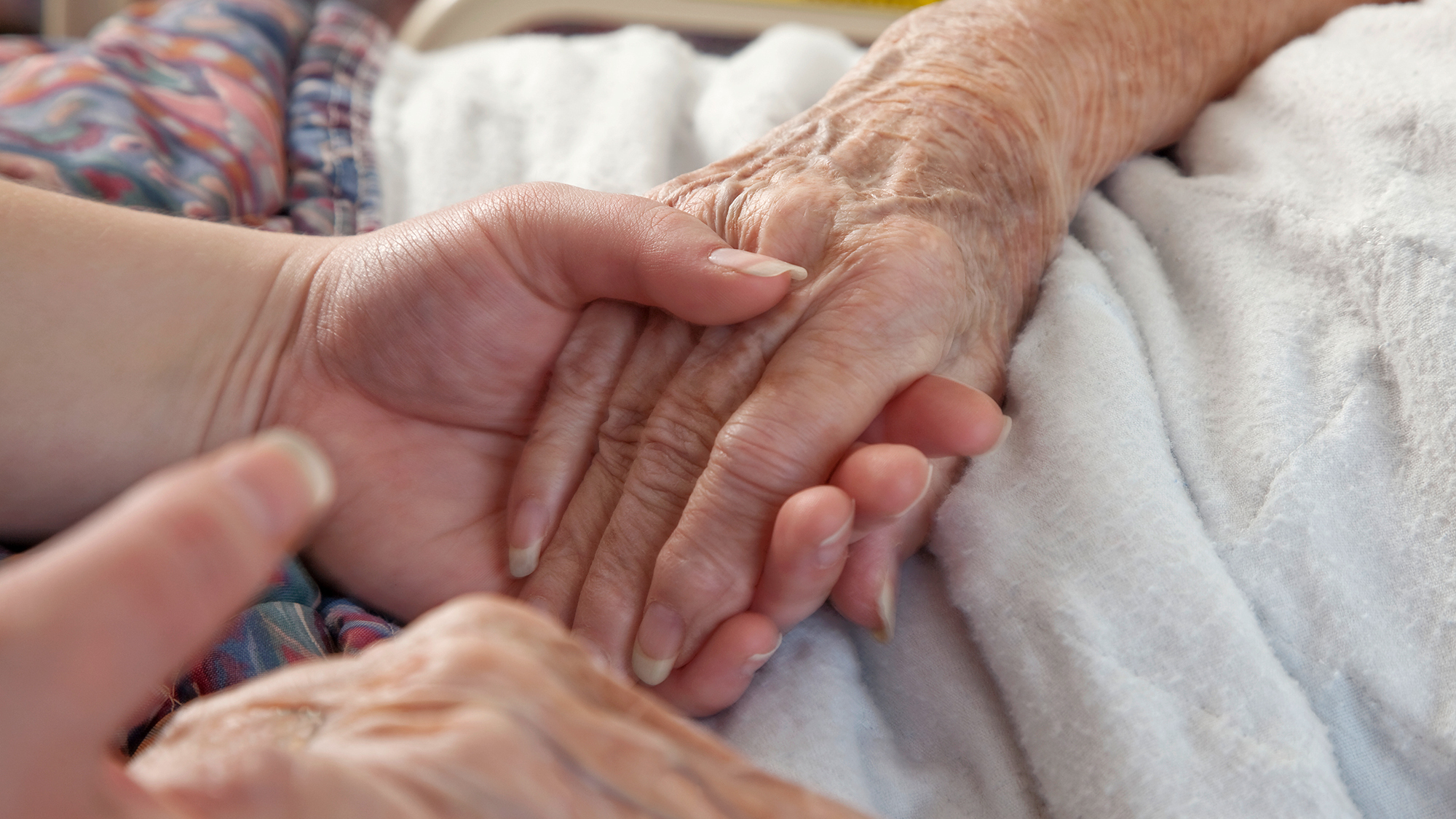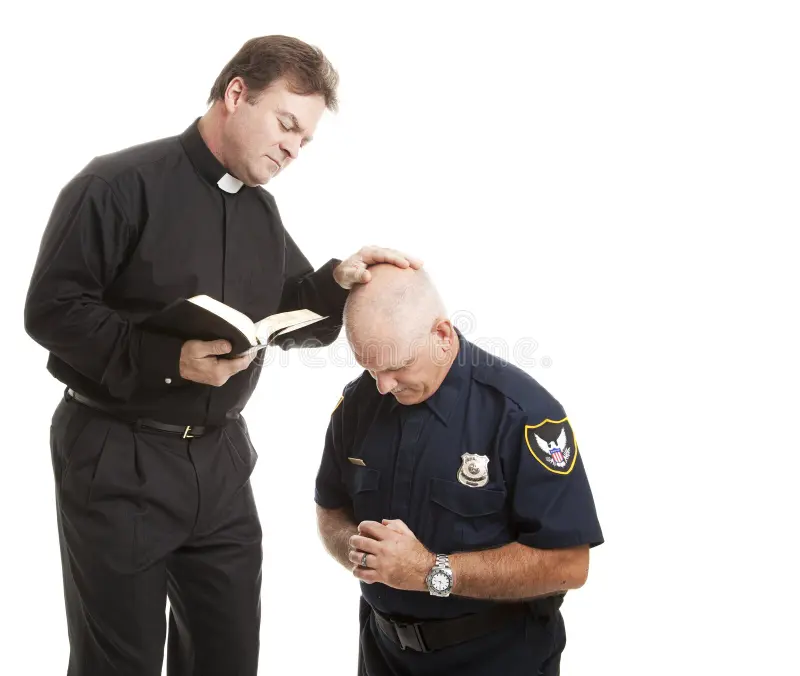
Created by - Willie Du Toit
"The Road to Becoming a Chaplain: A Guide to Chaplaincy Training"
We live in a time where people must face such difficult circumstances and have to cope with impossible situations. Since the world came to a literal standstill in 2020 due to the Covid-19 pandemic, everything has changed forever. The need for emotional support has never been greater than now and therefore it is essential that we find alternative ways and means to bring such support services to our Communities. We need to make it easily accessible, affordable, and readily available. Our aim is to train, equip and place Community Chaplains within reach of every human being through applicable, appropriate and effective training and skills development.Serving Traumatized Communities as ChaplainAs chaplains, our role is to provide spiritual and emotional support to individuals in need, but what happens when those individuals are a part of a traumatized community? How can we effectively serve and support those who have experienced significant trauma in their lives?In our upcoming course on serving traumatized communities as chaplains, we will explore the unique challenges and opportunities that come with ministering to those who have been deeply impacted by trauma. We will discuss the various types of trauma that individuals may experience, including natural disasters, violence, loss, and more, and how these experiences can shape an individual's spiritual and emotional well-being.Throughout the course, we will learn strategies for providing sensitive and compassionate care to traumatized individuals, including how to create safe spaces for healing, offer trauma-informed spiritual guidance, and connect clients with additional resources for support. We will also explore the importance of self-care for chaplains working with traumatized communities, as the emotional toll of this work can be significant.By the end of the course, students will have a deeper understanding of the ways in which trauma can impact individuals and communities, as well as the skills and knowledge needed to effectively support those who have experienced trauma in their lives. Together, we will explore the transformative power of providing spiritual and emotional care to those in need, and how chaplains can play a vital role in helping traumatized communities heal and find peace.Join us for this important and impactful course on serving traumatized communities as chaplains, and learn how you can make a difference in the lives of those who need it most.
More detailsPublished - Fri, 05 Apr 2024

Created by - Willie Du Toit
Send by God - sustained by Him
In times of uncertainty and hardship, it can be easy to feel lost and alone. We may question our purpose, our worth, and our place in the world. But as believers, we can take comfort in the knowledge that God is always with us, sending us the strength and guidance we need to navigate life's challenges.The concept of God sending and sustaining us is a powerful one. It reminds us that we are never alone, that God is always watching over us and providing for us. In the Bible, we see countless examples of God sending individuals on missions and sustaining them through difficult times.Take the story of Moses, for example. When God called Moses to lead the Israelites out of Egypt, Moses was hesitant and unsure of his abilities. But God assured him, saying, "I will be with you." And true to His word, God not only sent Moses on this mission but also sustained him, providing him with the strength and guidance he needed to lead his people to freedom.In our own lives, we may face challenges that seem insurmountable. But we can take comfort in the knowledge that God is always sending us the help we need and sustaining us through the toughest of times. As we navigate the ups and downs of life, we can trust in God's plan for us and rely on His strength to carry us through.So, let us remember that God sends and God sustains. Let us trust in His guidance and lean on His strength as we journey through this life, knowing that we are never alone. With God by our side, we can face whatever challenges come our way with confidence and faith.
More detailsPublished - Mon, 15 Jul 2024

Created by - Willie Du Toit
Truths & Beliefs
We Believe:The Chaplain on Board Initiative is a Christian Organization, based on the pure undiluted Word of God. Though we serve mankind without prejudice, judgment, or preference, only those who live an active life through the indwelling of the Holy Spirit of God, redeemed by the Blood of Jesus Christ and following the teachings of the Lord Jesus Christ as contained in the Bible, will be considered for ordination as volunteer Chaplain.We do not profess to be perfect, as no man in our current state can claim this, but we do choose to strive to live as the Apostle Paul proclaimed in Galatians 2:20"I have been crucified with Christ, and I live; yet no longer I, but Christ lives in me. And that life I now live in the flesh, I live by faith toward the Son of God, who loved me and gave Himself on my behalf. "Our Confession:1. The Holy Scriptures as originally given by God, are divinely inspired, inerrant, entirely trustworthy, and the only supreme authority in all matters of faith, conduct, and life. 2. The Trinitarian God of the Bible, one in substance, manifests in three functions: the Father, the Son, and the Holy Spirit. a. God the Father, the first person of the Divine Trinity, is infinite Spirit –sovereign, eternal, unchangeable in all His attributes. He is worthy of honor, adoration, and obedience. b. The Lord Jesus Christ, God manifest in the flesh, His virgin birth, His sinless life, His divine miracles, His vicarious death on the cross, His bodily resurrection from the dead, and His personal return in power and glory. c. The Holy Spirit, by whose filling and indwelling the believer is enabled to live a holy life, to witness and work for the Lord Jesus Christ. The Holy Spirit gives spiritual gifts to all believers; however, the manifestation of any particular gift is not required as evidence of salvation. 3. The salvation of lost and sinful man through the shed blood of the Lord Jesus Christ by faith, apart from works, a free gift of God’s grace, and regeneration by the Holy Spirit. That the work completed at Calvary by our Lord provides salvation that touches humanity: spirit, soul, and body. The new birth for the spirit, a sound mind for the soul, and healing for the body. Jesus Christ by faith, apart from works, a free gift of God’s grace, and regeneration by the Holy Spirit. That the work completed at Calvary by our Lord provides salvation that touches humanity: spirit, soul, and body. The new birth for the spirit, a sound mind for the soul, and healing for the body.4. Man created in the Image & Likeness of God, representing God on earth in two genders only, male and female. 5. The Gifts of the Holy Spirit, which are given to the Church to touch a sin-sick world with the power of the Risen Saviour. 6. The Church is the Body of the Lord Jesus Christ, through which He reaches the lost and touches Communities, Cities, and Nations. 7. Marriage is a divine and holy Institution between one man and one woman, and the family His place of safety for the upbringing of children. 8. The Fruit of the Spirit, through which His abiding produces a Christ-like character in the life of the believer, being the temple of the Holy Spirit. 9. Satan, who exists as a personal, malignant being who acts as a tempter and accuser, for whom the place of eternal punishment was prepared, where all who die outside of Christ shall be confined in conscious torment for eternity. 10. The unity of the Spirit of all true believers, the Church, the Body of Christ, which is commissioned by the Lord Jesus Christ to go into all the world and preach the Gospel. 11. The personal return of the Lord Jesus Christ, the resurrection of both the saved and the lost, they that are saved unto the resurrection of eternal life and they that are lost unto the resurrection of eternal damnation.12. That the redeemed man will live eternally in God's presence in the New Jerusalem.
More detailsPublished - Mon, 21 Oct 2024

Created by - Willie Du Toit
Chaplaincy Training
Hospital Chaplains play a vital role in the well-being of patientsThe Vital Role of Chaplains in Hospital Healing: More Than Just Spiritual ComfortHospitals are places of healing, but healing encompasses far more than just mending broken bones or curing illnesses. The holistic well-being of patients – encompassing emotional, social, and spiritual dimensions – is crucial for a complete recovery. This is where hospital chaplains step in, playing a vital role often overlooked in the discussion of healthcare. Their contributions extend far beyond simple prayer; they offer a unique blend of support that significantly impacts patient outcomes.Beyond the Religious: A Multifaceted Approach to HealingWhile often associated with religious practices, the role of a chaplain in a hospital setting is remarkably diverse and inclusive. They provide spiritual care, but their impact stretches to encompass emotional and social support, catering to individuals of all faiths and belief systems. A chaplain’s presence signals a commitment to holistic care, acknowledging that the human experience is multifaceted. This is reflected in various sources: Emotional Support: Chaplains offer a safe space for patients and their families to process complex emotions like fear, anxiety, grief, and uncertainty. This emotional support is vital, especially during challenging diagnoses, treatments, and end-of-life care. [1, 2, 5, 7, 15, 16] Social Support: They connect patients with necessary resources, bridging the gap between the medical team and the patient's support network. This can include connecting families with social workers, financial aid, or other community services. [1, 7, 16] Spiritual Support: This aspect encompasses offering comfort, hope, and meaning through prayer, meditation, or simply listening. This is particularly important for patients grappling with existential questions arising from illness. [3, 4, 5, 10, 12, 17] Advocacy: Chaplains can act as advocates for patients, ensuring their voices are heard and their needs are addressed within the healthcare system. [7] Support for Healthcare Workers: The stressful nature of healthcare work often takes a toll on staff. Chaplains provide emotional support and debriefing for healthcare professionals, contributing to a healthier and more compassionate work environment. [8, 16] The impact of chaplaincy on patient recovery is significant. Studies have shown that spiritual and religious beliefs can aid in coping with illness and promoting psychological well-being. [18]. Chaplains often assist patients and families in navigating these spiritual and emotional aspects, contributing to a more complete healing process. [18]The Expanding Role of Chaplains in Modern HealthcareThe role of the chaplain is constantly evolving to meet the complex needs of modern healthcare. For instance: Interfaith and Secular Approaches: Recognising the diverse backgrounds of patients, chaplains are increasingly adopting interfaith and secular approaches to spiritual care, ensuring that everyone feels supported regardless of their beliefs. [11, 15] Pain Management: The integration of spiritual care with pain management is gaining recognition. Addressing spiritual suffering can complement medical interventions, leading to improved overall pain management. [6] Community Outreach: Chaplains are extending their reach beyond the hospital walls, engaging in community outreach programs to address broader social and spiritual needs. [14] Addressing Concerns and MisconceptionsSome may view chaplaincy as solely a religious service, but this is a misconception. The emphasis is on holistic care, providing comfort and support to all patients irrespective of religious affiliation. The focus is on the individual's spiritual and emotional well-being, not on proselytizing. [11, 15, 17]FAQQ: Do I have to be religious to benefit from a chaplain's services?A: Absolutely not. Chaplains provide support to individuals of all faiths and no faith. They focus on emotional and spiritual well-being, offering a listening ear and a safe space for anyone in need. [11, 15, 17]Q: How do I access chaplain services in a hospital?A: Most hospitals have a dedicated chaplaincy department. You can usually find their contact information on the hospital's website or inquire with the nursing staff.Q: What kind of training do chaplains have?A: Chaplains undergo rigorous training, often including academic study and practical experience in pastoral care and counseling. This ensures they possess the skills and knowledge to provide effective and sensitive support. [9]Q: Are chaplain services confidential?A: Yes, conversations with chaplains are generally confidential, similar to those with other healthcare professionals.Watch a short Video about Hospital Chaplaincy Here: (Click on the Link)https://youtu.be/tRHKJtN9nu0?si=LRgMB7sMp_XMTsKZ
More detailsPublished - Mon, 21 Oct 2024

Created by - Willie Du Toit
Chaplaincy Training
The Vital Role of Chaplains in Law Enforcement: Supporting the Well-being of Officers and Their FamiliesLaw enforcement officers face immense pressures, routinely encountering traumatic events and high-stress situations. The emotional toll of this demanding profession can lead to burnout, PTSD, and even suicide. In this challenging environment, the role of police chaplains is increasingly recognized as vital to the well-being of officers and their families. They offer a unique blend of spiritual guidance, emotional support, and practical assistance, acting as a crucial buffer against the inherent stresses of the job.The Multifaceted Role of a Police ChaplainPolice chaplains are not simply religious figures offering prayers. Their roles are multifaceted and crucial to maintaining the mental and emotional health of law enforcement personnel. Their responsibilities often include: Counseling and Spiritual Guidance: Providing a safe and confidential space for officers to process trauma, grief, and personal challenges. This can involve individual counseling, group sessions, or simply offering a listening ear. https://www.hcunow.education/copy-of-chaplaincy-studies Critical Incident Stress Management: Providing immediate support to officers following traumatic events such as shootings, pursuits, or death notifications. Their presence can help de-escalate emotions and begin the healing process. https://www.ncnewsonline.com/news/local_news/chaplains-can-provide-support-in-times-of-crisis-to-law-enforcement/article_99289558-4452-11ef-ada3-9ba4cc7960e3.html Death Notifications: Assisting officers in delivering difficult news to families, offering compassionate support during an incredibly challenging time. https://www.hcunow.education/copy-of-chaplaincy-studies Community Engagement: Building bridges between law enforcement and the communities they serve, fostering trust and understanding. https://www.hcunow.education/copy-of-chaplaincy-studies https://www.flpd.gov/community-resources/chaplains Support for Families: Extending support to the families of officers, who also experience the emotional fallout of the job. https://www.icpc4cops.org/advocacy--support/why-chaplaincy.html https://aliveemployeesclub.com/serving-those-who-serve_lapd-chaplains/ Addressing Burnout and Mental Health: Proactively addressing issues of burnout and mental health among officers, often through educational programs and workshops. https://www.christianitytoday.com/2024/05/law-enforcement-trauma-can-chaplains-help/ https://flsheriffs.org/blog/entry/law-enforcement-mental-health-resources/ The Importance of Chaplaincy in a CrisisThe value of chaplains becomes particularly evident during times of crisis. Following a critical incident, a chaplain's presence can provide immediate comfort and emotional support to officers grappling with trauma. https://www.ncnewsonline.com/news/local_news/chaplains-can-provide-support-in-times-of-crisis-to-law-enforcement/article_99289558-4452-11ef-ada3-9ba4cc7960e3.html They offer a confidential space to process emotions, helping officers cope with the psychological impact of their experiences. https://news.ag.org/en/article-repository/news/2023/10/police-chaplain-offers-a-ministry-of-presence-to-officersChallenges and Future DirectionsWhile the benefits of police chaplaincy are clear, challenges remain. These include securing adequate funding, recruiting and training sufficient chaplains, and ensuring their services are accessible to all officers regardless of religious background. The future of police chaplaincy likely involves a greater emphasis on evidence-based practices, collaboration with mental health professionals, and the integration of technology to enhance accessibility and effectiveness.Frequently Asked Questions (FAQ) Are police chaplains affiliated with a specific religion? While many police chaplains are affiliated with religious organizations, many departments strive for ecumenical representation to ensure all officers feel comfortable seeking support. Is the information shared with a chaplain confidential? Yes, information shared with a chaplain is generally considered confidential, similar to a therapist or counselor. However, there are exceptions, such as instances of imminent harm. How can I become a police chaplain? Requirements vary depending on the department but generally involve a background check, training in crisis intervention and pastoral care, and often a religious endorsement. Do all police departments have chaplain programs? While many larger departments have established chaplain programs, smaller departments may not have the resources. This article highlights the critical role of police chaplains in supporting the well-being of law enforcement officers and their families. Their contributions extend beyond spiritual guidance; they provide essential emotional support, practical assistance, and community engagement, ultimately contributing to a healthier and more resilient law enforcement community.Watch a Video about Law Enforcement Chaplaincy: (Click the Link)Video One:Law Enforcement Chaplaincy - Part OneVideo Two:Law Enforcement Chaplaincy Part Two
More detailsPublished - Mon, 21 Oct 2024

Created by - Willie Du Toit
Chaplaincy Training
Chaplains play a crucial role in providing spiritual and emotional support to individuals in various settings, including hospitals, prisons, and the military. Often referred to as the "ministers of the soul," chaplains are called upon to offer comfort and guidance to those in need during times of crisis and uncertainty. However, the importance of career development for chaplains is often overlooked.Career development is essential for chaplains to not only enhance their skills and knowledge but also to nourish their spirits. Just as they are entrusted with caring for the souls of others, chaplains must also prioritize their personal growth and development. This is where career development comes into play.One of the key reasons why career development is crucial for chaplains is that it helps them stay current with the latest trends and best practices in the field of spiritual care. As the needs of those they serve evolve, chaplains must also evolve to effectively meet those needs. By attending professional development workshops, seminars, and conferences, chaplains can stay abreast of new techniques and approaches to spiritual care.Career development also allows chaplains to deepen their understanding of their faith and spirituality. Through continued education and self-reflection, chaplains can strengthen their belief systems and deepen their connection to the divine. This, in turn, enables them to better connect with and support those in their care.Furthermore, career development provides chaplains with a sense of purpose and fulfillment in their work. By investing in their professional growth, chaplains demonstrate a commitment to excellence and a dedication to the well-being of those they serve. This not only enhances their job satisfaction but also contributes to the overall effectiveness of their ministry.Let us briefly look at some areas of development for Chaplains on their journey toward maturity and efficiency:1. Emotional intelligence: Chaplains must possess a high level of emotional intelligence to effectively support and connect with individuals in times of crisis and need. This includes self-awareness, self-regulation, empathy, and strong people skills.2. Communication skills: Chaplains must be skilled communicators, able to effectively listen, speak, and write clearly, compassionate, and supportive. They must also be able to communicate cross-culturally and across religious and spiritual beliefs.3. Spiritual development: Chaplains must have a solid foundation in their own spiritual beliefs and practices in order to support others on their spiritual journeys. This includes ongoing personal reflection, study, and growth.4. Cultural competency: Chaplains must be culturally competent, understanding, and respecting the diverse beliefs, practices, and values of the individuals they serve. This includes awareness of different religious traditions, customs, and rituals.5. Crisis intervention skills: Chaplains must be trained in crisis intervention techniques and can provide emotional and spiritual support to individuals in times of crisis, such as illness, loss, or trauma.6. Conflict resolution skills: Chaplains must be skilled in conflict resolution and able to effectively mediate and facilitate communication between individuals in conflict, as well as provide guidance and support in resolving disputes.7. Ethics and boundaries: Chaplains must have a strong understanding of ethical standards and boundaries to maintain professionalism and confidentiality in their work, as well as to navigate complex ethical dilemmas that may arise.8. Self-care: Chaplains must prioritize self-care in order to maintain their own emotional, spiritual, and physical well-being. This includes setting boundaries, seeking supervision and support, and engaging in activities that nourish and replenish their spirits.9. Continued education and training: Chaplains must be committed to ongoing education and training to stay current on best practices, research, and trends in the field of spiritual care. This may include pursuing advanced certifications, attending conferences, or participating in peer supervision groups.10. Collaboration and networking: Chaplains must be skilled collaborators, and able to work effectively with interdisciplinary teams and community partners to provide holistic care to individuals and families. They must also be able to build and maintain professional relationships to advocate for the spiritual needs of those they serve.In conclusion, career development plays a vital role in the life of chaplains. By nurturing their souls and investing in their professional growth, chaplains can better serve those in need and make a lasting impact on the lives of others. Prioritizing career development is not only beneficial for chaplains themselves but also for the individuals and communities they support.
More detailsPublished - Mon, 17 Feb 2025
Search
Popular categories
Be Ready
2The need for chaplains
2Latest blogs

Chaplaincy Training
Mon, 17 Feb 2025

Chaplaincy Training
Mon, 21 Oct 2024

Chaplaincy Training
Mon, 21 Oct 2024
Write a public review